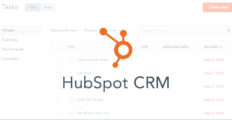Launching a startup can be both an exciting and daunting journey, filled with numerous decisions, big and small. =
One of these critical choices includes selecting the right software to help run your day-to-day operations. But getting the right software doesn’t mean you have to compromise on quality or efficiency, especially if you’re on a tight budget.
In this comprehensive guide, we will delve into various strategic approaches you can adopt to select the perfect software solution for your startup, all within your budget.

Understand Your Needs
As a starting point in choosing the right software for your startup, identifying your needs is paramount.
Ponder over what features are crucial for your business operations. Think about what is more vital, whether it is accounting management or seamless customer relations.
Once defined, these priorities will pave the way toward the contemplation of relevant software options. It’s about eradicating fluff and focusing on basic necessities because, in budget-crunched situations, there’s no room for frivolities.
Remember, this process isn’t just about the present state of your startup but also its future trajectory. Predicting requirements as per growth plans can save you from undesirable software hopping down the line.
Conduct Research
After defining your needs, it’s time to start hunting for software that could fulfill them. Dive into intensive research by looking at different platforms and comparing what they offer.
Check reviews, ratings, and testimonials to understand user experiences better. They’ll provide a perspective not found on a company’s website.
An advantage is taking free trials most companies offer. This way, you’ll have firsthand experience of how the software operates before investing.
Visit forums or discussion groups where you can hear from others who’ve faced similar challenges in choosing budget-friendly startup software. Through methodical exploration and study of all viable options, you can then make an informed choice that fits both your needs as well as financial constraints.
Seek Advice
When you are in pursuit of the right software matching your budget, there’s no harm in asking around. Consult with seasoned colleagues or mentors who have walked the path of startup life before and poured their resources into business software.
Whether within your industry or not, these perspectives can provide invaluable insight into practical usage scenarios beyond what’s found in marketing materials.
Bear in mind that recommendations should be taken as guidance, not as an ultimate answer. Consider their advice, but always measure it against your own identified needs and budget constraints. After all, every startup is unique, so what worked for someone else might not necessarily work for you.
Use Online Templates for Your LLC Operating Agreement
Online templates can be a real lifesaver when you’re working on a tight budget, especially when it comes to legal documents, such as the company agreement for an LLC.
Creating this crucial piece of the administrative puzzle from scratch might seem daunting and costly if you consult professionals. However, using online templates significantly brings down this cost and hassle.
These templates are designed by experts and conform to legal standards, giving your startup a professional foundation without a heavy price tag. You can find various options on the web that cater specifically to LLCs.
Remember, though, while they provide a reliable starting point, it is still advisable to have any legal documents reviewed by a professional before finalization. Ensuring your company agreement for an LLC is air-tight will shield your startup from potential future problems.
Consider Ease of Use
While it’s essential to find software that ticks all the right boxes for budget and needs, ease of use is a factor that should not be overlooked.
A user-friendly interface can save you an incredible amount of time and effort. It not only streamlines business processes but also reduces the learning curve for you and your team.
On the other hand, complicated systems could hamper productivity. They may require extensive training or cause frequent workflow interruptions, both costly drawbacks for a startup operating on tight funds.
So, when choosing your software, make sure it promotes efficiency rather than throwing up unnecessary hurdles in your startup operations. Remember, technology should serve as a facilitator in your growth journey, not a hurdle.
Cost-effectiveness Consideration
When you’re under a tight budget, making sure that every penny counts is critical. This holds particularly true when choosing the right software for your startup.
While it’s essential to find something that covers all your needs and is user-friendly, it should also provide value for money. If a piece of software offers tons of features but comes with a hefty price tag, it might not be the best choice.
Instead, look at the cost against how much usage you will get out of the software and how much time or labor it would save. Opt for solutions offering necessary functionality at affordable prices without compromising on quality.
Remember, sometimes less is more; therefore, focusing on a few primary features can deliver better results than an expensive multi-purpose behemoth, which could end up overwhelming and impractical for your specific operations.
Customer Support’s Role
Never underestimate the value of good customer support when choosing a software solution for your startup.
Regardless of how intuitive a software solution might be, inevitably, there will be times when you hit roadblocks or have questions to clarify. Here, dependable and quick customer support can come in handy.
Evaluate this aspect by looking at reviews online, seeking advice from peers who’ve used the software, or even reaching out to them directly with some queries before purchasing.
Bear in mind that a strong customer service channel not only interacts swiftly when an issue arises but also provides educational resources, tutorials, guides, or even webinars to enrich your user experience.
Think about Scalability
Another crucial factor when selecting your startup software is scalability.
Initially, you may only require a set of basic features. However, as your startup grows, so will your needs evolve. Choosing software offering scalability can aid in overcoming this hurdle seamlessly.
A scalable solution means it can handle the increasing workloads and incorporate additional functionalities as required with a few adjustments only rather than having to migrate to a completely new system each time.
This aspect not only saves time but also prevents disruptions in workflow. It’s an investment into the foreseeable future of your burgeoning business; hence, a must-have criterion for startups on tight budgets.
Conclusion
Finding the right software for your startup on a tight budget doesn’t have to be an unwieldy task. With the help of the above tips, you can make an informed choice that fulfills both your operational and financial needs.
However, keep in mind that the journey might require time and patience. But picking the correct software will definitely be worth it, significantly influencing the success trajectory of your startup.






















Leave a comment!